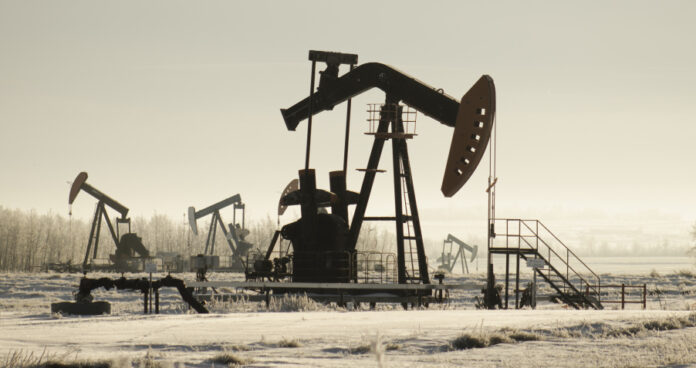Escalating Middle East conflict threatens oil supplies and UK inflation recovery
As violence escalates between Iran and Israel, now joined by the United States, the price of oil is surging again — and the UK is squarely in the firing line.
The world may be trying to cut its addiction to fossil fuels, but oil still powers economic growth. And the UK, like many nations, is a net consumer. That makes it painfully vulnerable to price spikes — and the latest Middle East crisis is already sending shockwaves through global energy markets.
After the US bombed Iranian nuclear sites over the weekend, Brent crude briefly jumped from around $60 at the start of June to $80 a barrel before settling near $77. Even that temporary spike could fuel inflation in Britain, with forecourt prices for petrol and diesel expected to rise swiftly.
The real threat, though, lies in what Iran may do next. Analysts warn that Tehran could retaliate by targeting energy infrastructure across the Gulf or by attempting to choke shipping through the Strait of Hormuz — the narrow maritime chokepoint through which about 20 million barrels of oil pass daily.
That strait, flanked by Iran and Oman, is the lifeline for a third of the world’s oil, flowing from countries like Saudi Arabia, Kuwait, Iraq and Qatar. It’s also key for liquefied natural gas exports, especially from Qatar — making it a critical pressure point in global energy supply.
Embed from Getty ImagesThough Iran has never fully closed the strait, not even during the bloody “tanker wars” with Iraq in the 1980s, it has previously seized ships to send a message. A British-flagged oil tanker was captured in 2019. Yet experts argue that a full blockade would be a self-inflicted wound — Iran earns nearly half its state revenue from oil and gas.
Even so, the risk remains. “Desperate regimes sometimes take desperate measures,” warned ITV’s Joel Hills. A full closure could send oil prices rocketing past $100 a barrel, with JP Morgan forecasting a peak of $120–$130 if exports grind to a halt. Saudi Arabia could reroute some oil westward via pipelines, but producers in Iraq, Kuwait and Bahrain would be stranded.
Meanwhile, the IMF has already sounded the alarm. Its managing director, Kristalina Georgieva, told Bloomberg she “prays” supply routes remain open, warning that surging oil prices could damage fragile global growth.
The conflict couldn’t come at a worse time for UK households, many of whom are still struggling with the fallout from the last energy shock caused by Russia’s invasion of Ukraine. Until recently, sagging oil prices — driven in part by a Trump-led trade war that began in April — had brought some relief.
In fact, inflation-adjusted pump prices had fallen to their lowest level in two decades. That decline was fuelling optimism that the Bank of England could soon cut interest rates — a move that would provide further breathing room for mortgage payers and small businesses.
But with the US now deploying bunker-busting bombs on Iran’s Fordow nuclear site, the global outlook has changed. If Iran chooses escalation, the economic cost could be felt almost instantly, not just in London or Manchester, but across every fuel forecourt and energy bill in the country.
What once seemed like a distant foreign conflict now threatens to hit UK consumers square in the wallet. As the world watches the Strait of Hormuz, the question is no longer just about diplomacy — it’s about whether families here can afford to fill their tanks next week.
